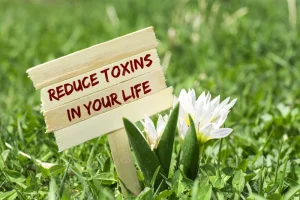
For example, studies show that sleep deprivation is linked to a range of social and emotional problems, including depression, anxiety, social withdrawal and lack of motivation. Setting a consistent, adequate sleep schedule can help you get the rest you need to function your best and cope with the challenges of having a loved one with an addiction. When a person enters addiction treatment and the family embarks on the recovery journey, the sense of hope everyone feels can be exciting. Oftentimes, people struggling with addiction also have underlying mental health conditions.

Family Therapy at Into Action Recovery
Many employers will offer health benefits to employees only after a certain length of employment, for instance. According to a study conducted by the Bureau of Labor Statistics, 69 percent of people employed in the private sector had access to health insurance, with the company picking up 71 percent of the costs for that insurance. Failing to maintain steady employment may cause a family to be uninsured, therefore increasing their expenses for routine health care. Another long-term consideration financially is planning for one’s future financial health.
Developing Coping Strategies for Families

She has passed more than 120 laws since taking office in 2006, and in 2015 became the Chair of the Assembly Committee on Alcoholism and Drug Abuse. Part of her mission as Chair is to help eliminate the stigma around substance use disorder and to advocate for harm reduction as an integral part of drug policy. Encouragement and support from family members are vital lifelines in the sea of recovery. This support transcends the mere absence of negative or discouraging notes about actively uplifting and inspiring the individual at every step of their recovery journey. Encouragement takes many forms, from celebrating milestones (no matter how small) to reminding the individual of their strengths and the brighter future that awaits.

Encouraging you to seek treatment

Engaging in workshops, support groups, and educational sessions tailored for families, participants learn coping strategies and communication techniques that are pivotal in supporting their loved one’s recovery journey. Incorporating family therapy into addiction recovery is paramount for addressing the underlying issues that may have contributed to substance abuse and for healing interpersonal relationships strained by addiction. At RECO Intensive, we believe in the power of family therapy to unearth the root causes of addiction, facilitate open dialogue, and resolve conflicts family support in addiction recovery in a safe and structured environment. Our therapy sessions aim to repair trust, improve communication, and foster a united front in supporting the journey to recovery. Engaging in family therapy empowers families to become active participants in their loved one’s rehabilitation process, offering a vital support network that nurtures long-term sobriety. It’s through this collaborative effort that families not only aid in their loved one’s recovery but also embark on their journey of healing and growth, reinforcing the familial bonds that addiction may have weakened.
You’ll meet others who are going through or have gone through similar situations who can offer you support and an understanding ear. While families often bear the burden of the consequences of their loved one’s substance use disorder, they can also play a huge role in their family member’s recovery. Family support plays a pivotal role in addiction recovery, offering a lifeline of https://ecosoberhouse.com/ assistance and understanding to recovering individuals. It is no wonder, then, why a key type of recovery capital comes in familial and communal recovery capital. By examining the significance of familial bonds and understanding the ways in which family members can contribute positively, we aim to shed light on the profound impact that family support has on addiction recovery.

- Actively listening to their concerns, validating their emotions, and offering guidance without imposing control can foster a strong foundation of trust.
- It should not be used in place of the advice of your physician or other qualified healthcare providers.
- She has a Bachelor of Science in Education, is a Certified Recovery Peer Advocate, and is a board member for National Alliance for Medication Assisted Recovery.
- Building a more robust parallel process of recovery for the individual client struggling with SUD and for their support network should be the standard for treatment agencies moving into the future.
- Your family members can offer practical assistance when needed, like running errands or providing transportation.
- This feedback loop continues for both negative and positive experiences (SAMHSA, 2020; Lander, Howsare, & Byrne, 2013).
- The effectiveness of these youth-focused strategies could be substantially enhanced by directly involving families.
- Continuous support, on the other hand, involves being there during times of doubt or difficulty, offering a listening ear, and providing the necessary resources or assistance to navigate challenges.
- The Diagnostic and Statistical Manual of Mental Disorders (DSM) avoids the terms addiction and recovery.



